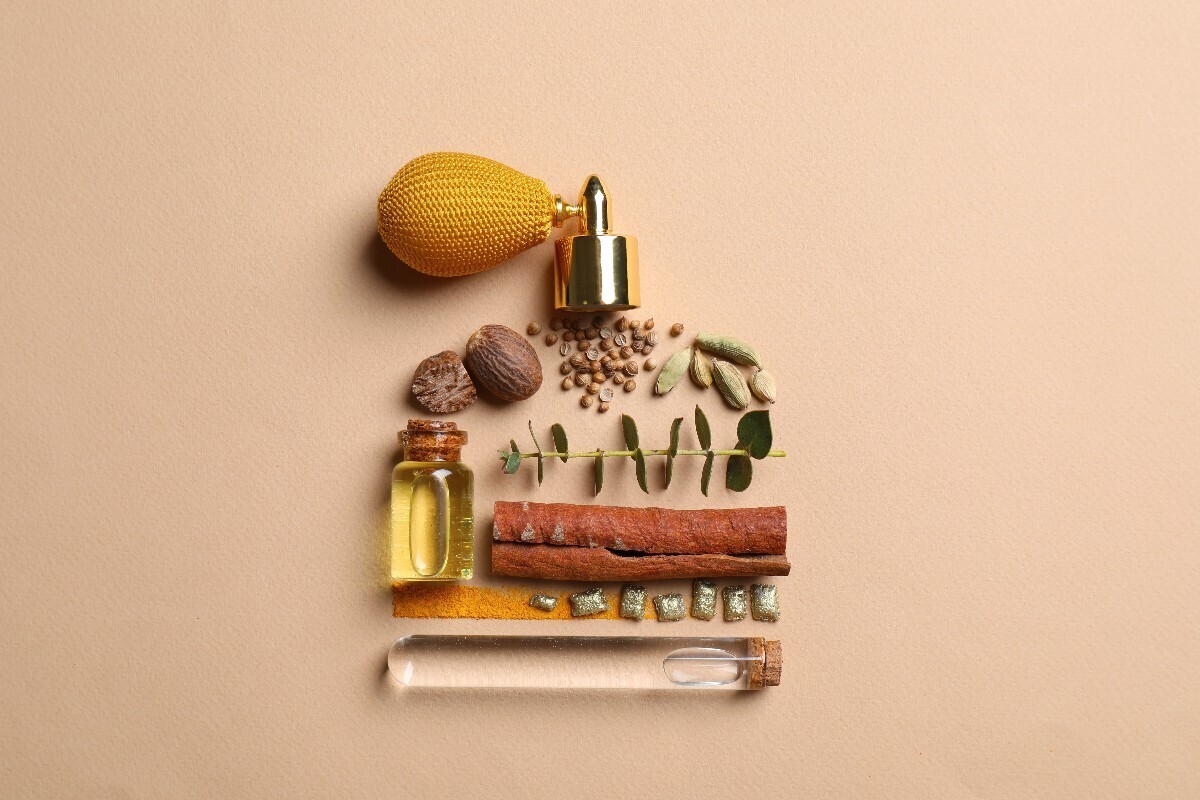
Understanding the Design Expertise Behind Beautiful Scents: How Perfume is Made
The specialists at Parfum Muse answer common questions on the art and technicality of how perfume is made

Perfume production dates back thousands of years, with a vast selection of scents, fragrances and ingredients ranging from florals and herbal notes to sugary-sweet accents, musk, oils, roots and even mosses and barks.
While many of us have a favourite character scent and enjoy a subtle cologne or eau de toilette to lift our mood and finish an outfit, few understand the science behind perfume making or why some scents feel 'right’, and others simply aren't to their taste.
The specialists at Parfum Muse answer some of the most common questions and clarify the art and the technical skill that goes into those elegant bottles that adorn your dresser.
How Do Perfume and Beauty Brands Extract and Blend Scents?
Perfume production is more complex than might be imagined. It includes a process of collecting ingredients or producing synthetic alternatives, extracting oils, blending them together, and ageing the finished product, followed by in-depth quality control.
Interestingly, many ancient perfume production methods are still used now, albeit with greater reliance on technological equipment, scientific testing and synthetic ingredients. However, we still use essential oils like lavender, rosemary, lemon and eucalyptus, alongside classic florals such as jasmine and rose which have been used as scents for around 4,000 years.
Methods Used to Extract Essential Oils for Perfumes and Colognes
There are several techniques used to extract those valuable ingredients and essential oils that are naturally available:
- Solvent extraction involves placing plants, roots, or flowers into rotating devices and dissolving the raw ingredients in a solvent until they dissolve and create an oil-rich wax.
- Natural materials can be extracted using steam, where the steam enriched with the essential oil is cooled into a liquid.
- Producers can also press flowers or petals between sheets of glass with a greased coating, using pressure to extract the scent and mix it into the grease.
Whichever production technique the manufacturer uses, the end product is a concentrated oil that can be used as a base ingredient, often mixed with alcohol to dilute it. The alcohol is then burned off to increase the potency and scent profile of the perfume.
Synthetic vs Natural Perfume Ingredients
Countless sources of scents go into our perfumes, which can be plant-based or synthetic. Modern brands typically synthesise scents that traditionally were made from animals or animal by-products.
Castoreum (or castor) is a great example. Once an animal-derived note that came from beavers, with an intense, rich, leathery smell, today a perfume or cologne with a castor scent profile will almost always be synthetic – this therefore doesn’t denote poor quality but is a more ethical way of producing fragrances.
Unusual, rare and hard-to-find perfumes commonly use synthetic chemicals that emulate specific scents because the flower, plant or animal from which the original fragrance came is protected and synthetics better align with sustainability values.
You’ll find accents of castoreum in several top colognes, including:
- Initio Parfums Privés: Absolute Aphrodisiac Eau de Parfum
- Laboratorio Olfattivo: Nerosa Eau de Parfum
- BDK Parfums: Oud Abramad Eau de Parfum
Synthetics are also used to mimic natural scents, such as musk and lily of the valley, and for other purposes, like the aliphatic aldehydes used in Chanel No 5, which give it that distinct sparkle.
Natural ingredients can include myrrh, rose, jasmine, vanilla, citron, sandalwood, oakmoss, and frankincense, and fixatives like resins, which are added to alcohol to dilute the ingredients and create wearable perfume.
Why Are Some High-End Perfumes Aged?
Perfume production is not dissimilar in technicality and precision to the manufacture of fine wines, and a quality or pure perfume doesn't go straight to the shelves once produced. Instead, these scents can be blended and then aged for a few months or possibly even several years, which allows the perfume to mature and deliver the optimal fragrance.
Like a wine, the ageing process allows all the notes used in the perfume to blend thoroughly, which is how we arrive at fragrances and colognes with base notes – which last and represent the enduring fragrance – and top notes.
The more concentrated the perfume, and the higher the proportion of essential oil, extract or ingredient, the stronger the scent will be and the higher the price. An eau de parfum is normally more expensive than a body mist since the former has a lower alcohol concentration and a richer scent profile.
How Are Perfumes Subject to Quality Control?
It may seem a mystery how every time you purchase a bottle of your go-to perfume, wherever you are in the world, regardless of the bottle size, it always smells exactly the same. The secret is the quality control process, where the most luxurious brands use precise controls to maintain the highest standards.
This process is partially to ensure that each batch of perfume has been tested and matches specific concentration levels but also verifies that there are no banned, restricted, or prohibited substances or those that could cause skin irritation.
While the vast majority of perfumes sold in the UK and the Western world are cruelty-free and contain no animal oils, there are countries where these practices are permitted, which is why perfume brands have to go to great lengths to test and quality control their scents.
However, advancements in synthetics and the ability to replicate even the most intricate, delicate natural scent removes the need to harvest ingredients and reduce the time quality control requires.
Read more about Parfum Muse - The Perfect Guide To Gifting Perfume, Choosing A Scent For A Loved One
About Parfum Muse
Parfum Muse is the new luxe shopping destination for perfume lovers, showcasing some of the UK’s most premium niche and fine fragrances.
***
Source Company - https://www.parfum-muse.com/
